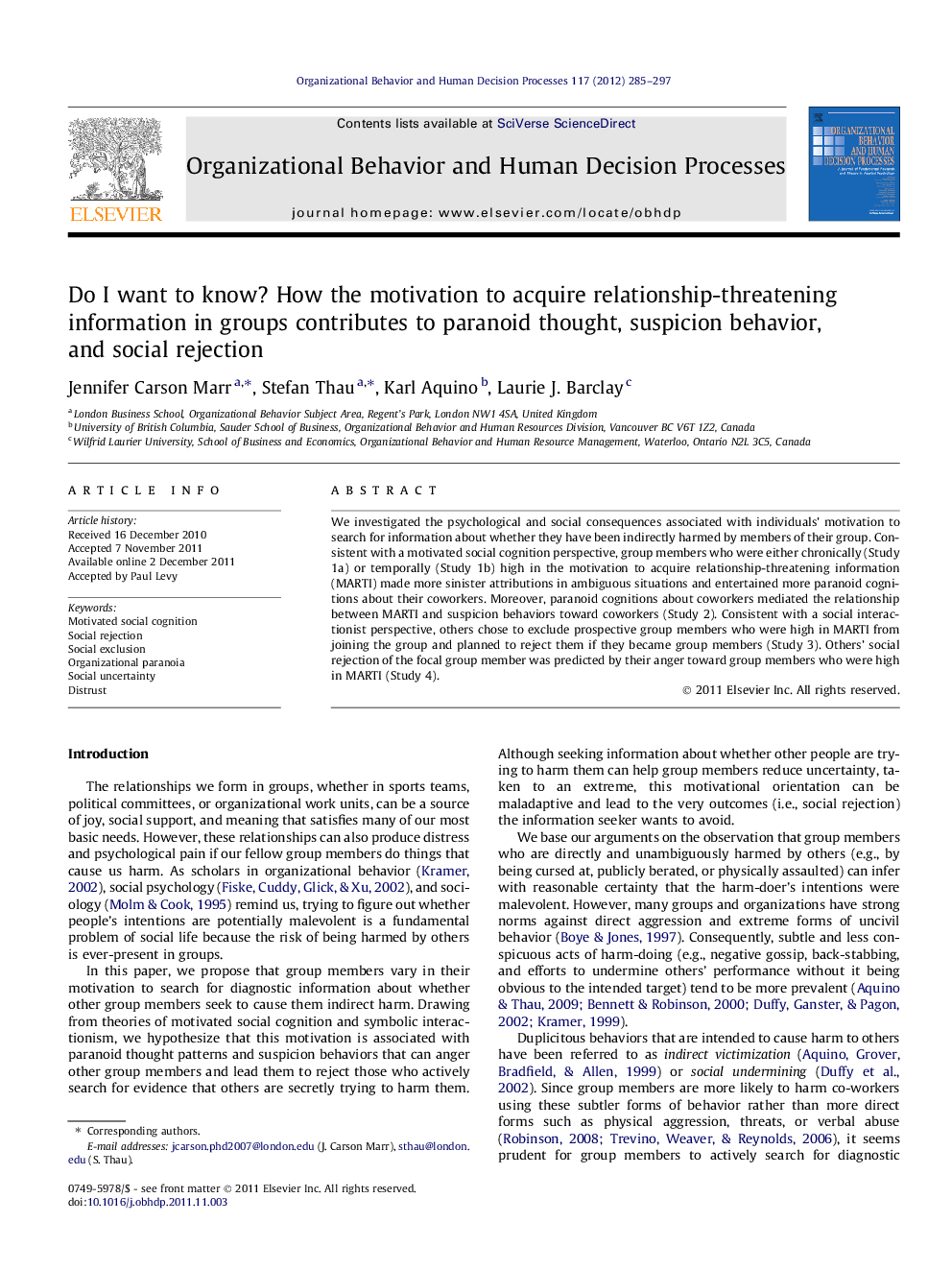| کد مقاله | کد نشریه | سال انتشار | مقاله انگلیسی | نسخه تمام متن |
|---|---|---|---|---|
| 888656 | 913559 | 2012 | 13 صفحه PDF | دانلود رایگان |
We investigated the psychological and social consequences associated with individuals’ motivation to search for information about whether they have been indirectly harmed by members of their group. Consistent with a motivated social cognition perspective, group members who were either chronically (Study 1a) or temporally (Study 1b) high in the motivation to acquire relationship-threatening information (MARTI) made more sinister attributions in ambiguous situations and entertained more paranoid cognitions about their coworkers. Moreover, paranoid cognitions about coworkers mediated the relationship between MARTI and suspicion behaviors toward coworkers (Study 2). Consistent with a social interactionist perspective, others chose to exclude prospective group members who were high in MARTI from joining the group and planned to reject them if they became group members (Study 3). Others’ social rejection of the focal group member was predicted by their anger toward group members who were high in MARTI (Study 4).
► We study the motivation to acquire relationship-threatening information in groups.
► High MARTI individuals want to know whether others indirectly harmed them.
► High MARTI individuals exhibited paranoid thought patterns and suspicion behaviors.
► Other group members socially rejected those high in MARTI because they angered them.
Journal: Organizational Behavior and Human Decision Processes - Volume 117, Issue 2, March 2012, Pages 285–297
